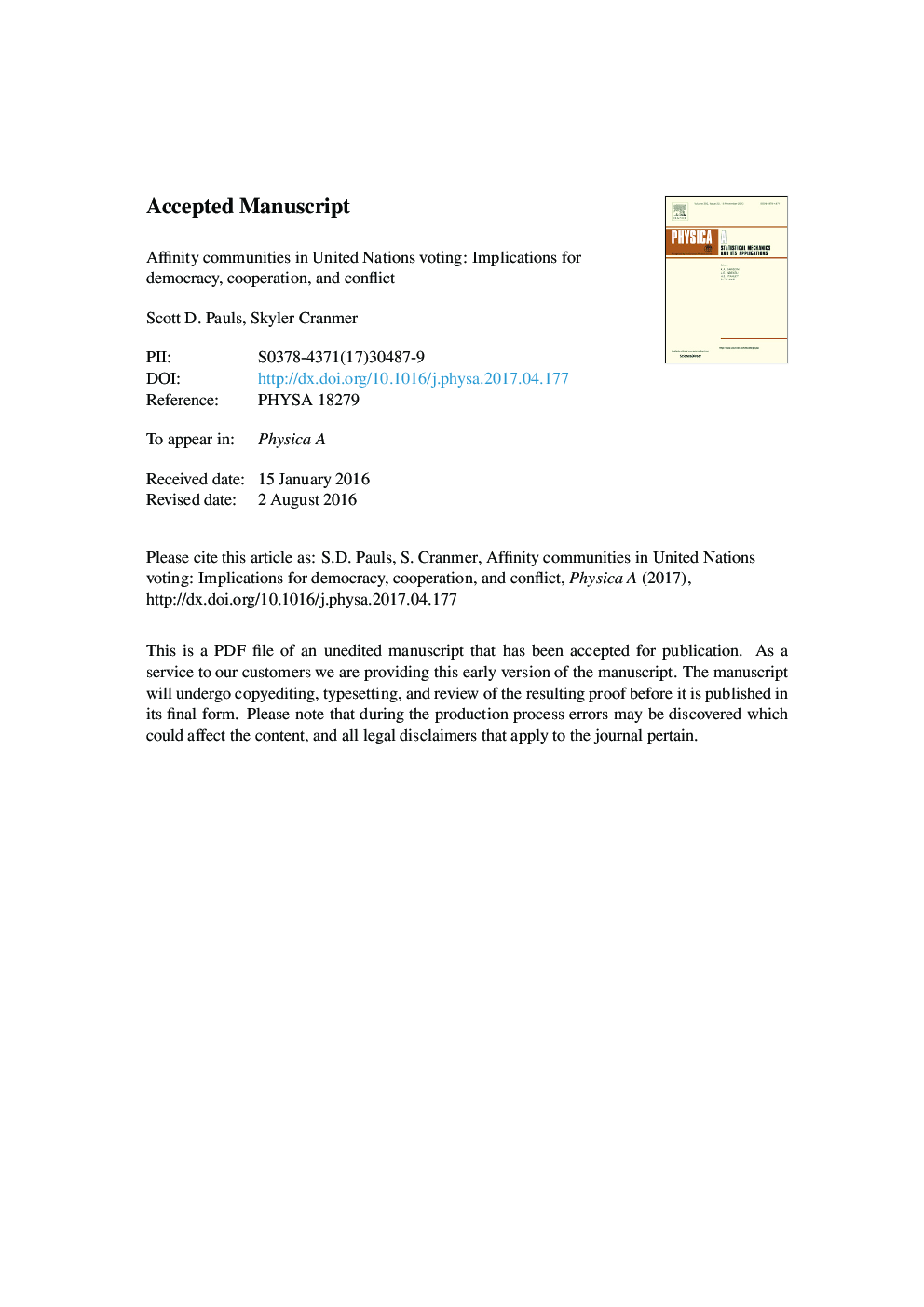| Article ID | Journal | Published Year | Pages | File Type |
|---|---|---|---|---|
| 5102708 | Physica A: Statistical Mechanics and its Applications | 2017 | 27 Pages |
Abstract
A network oriented examination of the co-voting network of the United Nations (UN) provides powerful insights into the international alignment of states, as well as normatively important processes such as democracy, defensive cooperation, and armed conflict. Here, we investigate the UN co-voting network using the tools of community detection and inductively identify “affinity communities” in which states articulate similar policy preferences through their voting patterns. Analysis of these communities reveals that there is more information contained in UN voting and co-voting patterns than has previously been thought. Affinity communities have complex relationships with some of the most normatively important international outcomes: they reflect transitions to democracy, have a feedback loop with the formation of defensive alliances, and actively help states avoid armed conflict.
Related Topics
Physical Sciences and Engineering
Mathematics
Mathematical Physics
Authors
Scott D. Pauls, Skyler J. Cranmer,
